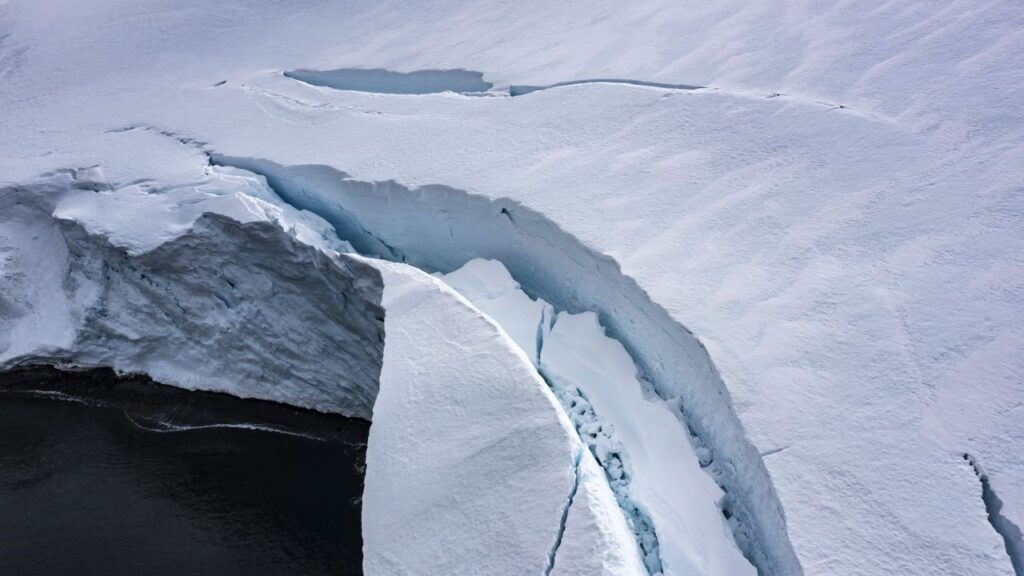Report: Ocean currents in Antarctica are collapsing

According to a new analysis, the rapidly melting Antarctic ice is dramatically slowing deep ocean currents, which might have catastrophic effects on the climate.
A group of Australian scientists predicts that by 2050, the deep-water fluxes that propel ocean currents may have decreased by 40%. Throughout the world, the currents transport nutrients, oxygen, and other essentials like heat.
According to earlier studies, a slowing of the North Atlantic current may result in cooler temperatures in Europe. The study, which was published in the journal Nature, also issues a warning that the sluggishness may lessen the ocean’s capacity to absorb carbon dioxide from the atmosphere.
The study describes how the passage of cold, thick saltwater towards the sea floor in Antarctica is one of the forces that propel the planet’s network of ocean currents.
But, as the ice cap melts, seawater loses salt and density, slowing the downward migration.
In the northern and southern hemispheres, these deep ocean currents, or “overturning,” have been generally steady for thousands of years, but the warming climate is already causing disruptions.
As ocean circulation decreased, water on the surface quickly reached its capacity to absorb carbon and was not immediately replenished by non-carbon-saturated water from deeper levels, according to Dr. Adele Morrison, a contributor to the paper.
According to the 2018 Atlas Study, the Atlantic Ocean circulation system had changed dramatically over the previous 150 years and was now weaker than it has been in more than 1,000 years.
It was hypothesised that modifications to the Atlantic Meridional Overturning Circulation (Amoc), which resembles a conveyor belt, might chill the ocean and north-west Europe and have an impact on deep-sea organisms.
In the 2004 movie “The Day After Tomorrow,” about a climatic catastrophe, Amoco’s shutdown was sensationalised.
Dr. Morrison, however, asserted that the marine ecosystems and Antarctica itself would be more affected by a slowing of the southern overturning.
Their simulations, which indicate that deep water circulation in the Antarctic may slow at a rate twice as fast as that in the North Atlantic, were created over the course of two years and 35 million computation hours.
Climate scientist Alan Mix from Oregon State University and co-author of the most recent “Intergovernmental Panel on Climate Change (IPCC)” assessment remarked, “It’s remarkable to see it happen so quickly.”
The impact of Antarctic meltwater on ocean currents has not yet been taken into account by the IPCC’s models for climate change, but Prof. England predicted that it will be “significant.”
